The 2025-2026 Fellow application is open. Apply today!
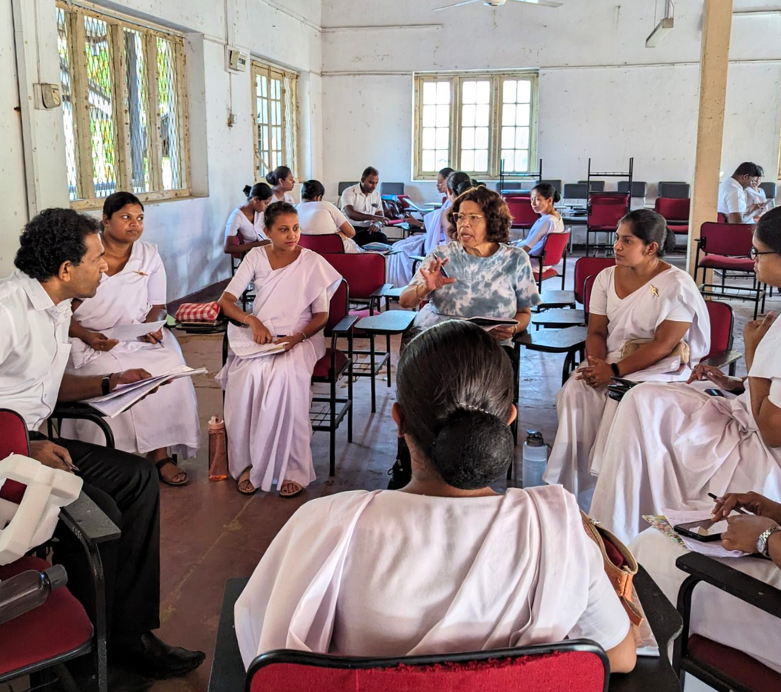
Fellow Application Process
The application process provides multiple opportunities for applicants to illustrate their qualifications and demonstrate their interest in the English Language Fellow Program. The first step is documenting eligibility.
Fellow Program
Eligibility
- Minimum Requirements
- Preferred Qualifications
- Certificates, Endorsements, Degrees
The English Language Fellow Program recruits trained and experienced U.S. TESOL professionals for full-time, 10-month, in-country EFL teaching fellowships abroad.
Fellow applicants must demonstrate that they have:
- U.S. citizenship.
- A conferred graduate level degree or higher in TESOL, applied linguistics, or a field related to English language teaching.
- Applicants with a graduate level degree in a field unrelated to TESOL are eligible to apply if they have one of the following additional credentials:
- A recognized TESOL certificate with at least 120 course hours plus a supervised and observed practicum (additional information regarding certificates can be found in the Certificates, Endorsements, Degrees tab).
- A current, valid, and full state teacher credential, certification, or license with a specialization or an endorsement in ESL, or the equivalent.
- If a degree was awarded by a non-U.S. institution, it must be evaluated by an educational credential evaluation service. Visit the National Association of Credential Evaluation Services for a list of evaluation companies. Most of these companies provide a variety of evaluations, but a general evaluation is sufficient for the program’s application requirements. Once a general evaluation from one of the recommended evaluation companies is obtained, it must be uploaded directly into the application.
- Applicants with a graduate level degree in a field unrelated to TESOL are eligible to apply if they have one of the following additional credentials:
- A minimum of five (5) years of full-time experience in education, including three (3) years of full-time ESL/EFL classroom teaching. The definition of a full-time academic year depends on the setting:
- University and community college setting: one academic year consists of two semesters or three terms at 12 to 15 instructional hours/week.
- Adult education: one academic year consists of the equivalent of two semesters or three terms at 12 to 15 instructional hours/week.
- K-12 public/private school setting: one academic year consists of two semesters or three terms at 15 to 25 instructional hours/week.
Special Requirements
In some cases, projects have additional requirements and restrictions related to, among others, education or employment history, medical conditions, conviction history, age (related to local labor laws), or dependents.
While these factors will not preclude an applicant from consideration for the program, they may prevent an applicant from being considered for certain projects. For example, some countries may have specific requirements to apply for a visa, or may restrict dependents due to housing or security concerns; or a project may require someone with a very specific educational background.
Medical Clearance
All selected candidates must complete a Health Verification Form (HVF) and submit it to the cooperating agency no later than 15 business days after accepting a fellowship. All fellowship offers are conditional pending medical clearance. Selected candidates whose HVFs are not cleared will be notified and their fellowship offer will be rescinded.
Eligibility Restrictions
Applicants should note the following:
- Applications from former English Language Fellows are not accepted (with the exception of qualifying 2019-20 Fellows whose projects were terminated due to COVID-19). Click here to learn more about opportunities for program alumni.
- English Language Fellows, Specialists, and Virtual Educators are not permitted to engage in overlapping projects between, or within, the three programs.
- English Language Fellows are not permitted to undertake any additional, outside work during the fellowship agreement period.
- English Language Fellows, Specialists, and Virtual Educators cannot participate in or have an open award with any other U.S. Department of State-funded exchange program(s) during their agreement period.
- The following persons are ineligible for English Language Fellow Program assignments during and for a period ending one year* following the termination of employment, association, or service:
- Employees of the U.S. Department of State or the U.S. Agency for International Development. This provision includes all employees, paid or unpaid (including part-time or temporary employees, consultants, and contract employees). This provision does not apply to interns;
- Employees of private and public agencies (excluding educational institutions) under contract to the U.S. Department of State to perform administrative or screening services on behalf of the Bureau of Educational and Cultural Affairs’ exchange programs;
- Officers of an organization, in the United States or abroad, including members of boards of trustees or similar governing bodies, or individuals otherwise associated with the organization, wherein the organization and the individuals are responsible for nominating or selecting individuals for participation in any exchange program of the Bureau of Educational and Cultural Affairs;
- Immediate families (spouses and dependent children) of individuals described in paragraphs 1-3. This provision does not disqualify self-supporting children who live apart from their parents.
- The one-year period of ineligibility is calculated from the date of termination of employment, service, or association until the date of submission of a Fellow application.
Applicants that are considered most competitive not only meet the minimum eligibility requirements, but also demonstrate the following experience and qualities:
- Flexibility, cultural adaptability, resourcefulness, desire and ability to live and work abroad, and the personal motivation to be a Fellow.
- Experience with classroom management, instructional technology, online teaching, and materials and/or resources development. On average, selected candidates have 8-10 years of full-time EFL/ESL classroom experience.
For more specialized projects, successful applicants demonstrate some or all of the following:
- Experience with teacher training; EAP, especially academic writing and research; ESP teaching; and/or STEM for K-12 and university students.
- Experience living and teaching EFL abroad.
- A commitment to the field of English language teaching through membership in an English language teaching professional association, experience presenting at English language teaching conferences, and publishing materials in the field of TESOL.
- Leadership skills, excellent work ethic, and the ability to take initiative, work well with others, problem solve, and show good judgment.
Certificates: Applicants with a graduate level degree in a field unrelated to TESOL are eligible to apply if they have a certificate with the following components:
-
-
- A minimum of 120 instruction contact hours or an equivalent in credit hours for a certificate granted by a BA or MA TESOL program.
- Live, online, and blended course instruction may be considered.
- 100-hour certificates may be accepted for eligibility if the program includes 10 or more supervised and observed practicum hours. If the 100-hour certificate program has fewer than 10 hours of practicum, the candidate may be considered eligible with an additional year of full-time ESL/EFL classroom teaching.
- Classroom practicum/practice teaching (preferred six (6) or more hours), supervised and observed by a qualified professional.
- If a 120-hour certificate program does not include a supervised and observed practicum, the candidate may be considered eligible with an additional year of full-time ESL/EFL classroom teaching.
- Curriculum components (minimum):
- Second language acquisition
- Motivation and the language learner
- Methods and techniques
- Teaching language skills: reading, listening, speaking, writing
- Teaching grammar and vocabulary
- Lesson planning
- Classroom management
- Resource and materials development
- Testing and assessment
- Cultural, linguistic, and multi-cultural sensitivity
- A minimum of 120 instruction contact hours or an equivalent in credit hours for a certificate granted by a BA or MA TESOL program.
-
Applicants must submit the following documentation of their certificate with their application:
-
-
-
-
-
- Scan of the certificate document.
- Web address (URL) where the certificate program’s curriculum and practicum components can be verified.
-
-
-
-
Endorsements: If an applicant is submitting a K-12 license/endorsement, they must ensure that documentation is uploaded to the application for their most up-to-date credential.
Graduate-level degrees – related vs. unrelated: In order for a graduate level degree to qualify as “related” to English language teaching – if it is not expressly in TESOL or applied linguistics – coursework should have included courses that provide explicit training to be an ESL/EFL teacher, such as teaching methodology, language pedagogy, second language acquisition, language testing and assessment, etc.
Applicants with a graduate level degree in a field unrelated to TESOL are eligible to apply if they also have one of the following credentials, in addition to the other minimum eligibility requirements:
-
-
-
-
- A recognized TESOL certificate with at least 120 course hours plus a supervised and observed practicum (additional information regarding certificates can be found above).
- A current, valid, and full state teacher credential, certification, or license with a specialization or an endorsement in ESL, or the equivalent.
-
-
-
To be eligible, all applicants must have a graduate level degree. A graduate level degree in TESOL, or in a field related to English language teaching, is preferred. If an applicant does not have a graduate level degree related to English language teaching, and they also do not have a qualifying TESOL certificate or K-12 ESL state credential, they may be considered eligible if they have FIVE or more years of full-time ESL/EFL, TESL/TEFL, or TESOL classroom teaching experience with English language learners.

Fellow Program
Application Process
- Overview
- Personal and Background Information
- Education, Credentials, and References
- Professional Experience and Capabilities
- Essays, Lesson Plan, and Teacher Training Module
- Resume/CV, Transcripts, and Certificates
- Regional Preferences
- Additional Information
- When to Submit an Application
- How to Submit an Application
Applicants should review the eligibility requirements before submitting an application.
Applying to the English Language Fellow Program is competitive, and each year more applications are received than the program can accommodate.
Personal Information: All applicants are asked to complete a brief Personal Information section to provide details such as preferred name, gender, ethnic background, and dual citizenship status.
Background Information:
-
- Current Address and Contact Information
- Criminal Conviction History – Applicants who, at the time of application, or at any subsequent time prior to becoming an English Language Fellow, have been convicted of commission of a felony or a misdemeanor (excluding minor traffic violations), must inform the program.
- U.S. Government Affiliation, as it relates to the applicant’s eligibility to apply for the program.
- Previous U.S. Government Grantee Information – Whether the applicant has previously been a recipient of another U.S. government grant. This can include, among many others, participation in English Language Programs – as a Specialist, Virtual Fellow, etc.; receipt of a Fulbright grant as an ETA, Student, Scholar, etc.; or serving as a Peace Corps Volunteer.
- Language Skills – Additional language skills are not required, but they can be helpful for projects in certain regions.
- Affiliations and Awards – Affiliations to organizations or professional associations relevant to the field of TESOL, such as TESOL International, regional TESOLs, NABE, or others; relevant awards or accolades received throughout the course of the applicant’s career.
- Minority Serving institutions – Applicants indicate any minority serving institutions that they either attended as a student or have been employed by.
Education/Credentials:
- The applicant’s academic background, including relevant degrees, certificates, diplomas, state ESL endorsements, or other required credentials for eligibility.
References:
- Contact information for at least two professional references from the applicant’s professional life within the last five (5) years.
- At the moment an application is submitted, references are automatically emailed a link to an electronic questionnaire with six questions to complete.
- Applicants should reach out to their references to ensure receipt of the email.
- One of the two references should be a current or most recent supervisor who has observed the applicant in the classroom.
- Both references should be able to speak to the applicant’s ability to succeed in the Fellow Program by providing examples of their work ethic, initiative, leadership skills, resourcefulness, flexibility, judgment, classroom management skills, and overall strengths and weaknesses.
- Reference responses are confidential.
- An application is not complete, and will not be reviewed, until the two required references have submitted their responses.
Professional Experience:
- This section gathers details regarding relevant professional experience, including employer name, city, state, and country, as well as the applicant’s title, employment dates, average hours per week and instructional hours (if applicable).
- Professional Experiences is reviewed alongside the Resume/CV, so the two should match
Professional Capability:
- This section provides the applicant the opportunity to describe their professional capabilities in as many of the categories below as are relevant to their background and experience.
- Each question asks for evidence of specific outcomes of the applicant’s work, unique contributions they made, recognition they received related to their capabilities, etc. Each entry is limited to 70 words or fewer.
- ESL, (domestic) English as a second language;
- EFL, (international) English as a foreign language;
- K-12, (domestic) e.g., SIOP, bilingual schools, ESL aid/assistant;
- K-12, (international) e.g., international schools, bilingual education, language schools, language tutoring centers;
- Content-based instruction, e.g., STEM/STEAM, current affairs, arts;
- Higher Education, e.g., universities, community colleges, IEPs, vocational or technical schools;
- Adult Education, e.g., language schools, community language classes, professional language institutes;
- Presentations/workshops/other, e.g., state/regional conferences, presenting at staff professional development meetings, leading voluntary professional development meetups;
- Teacher training, e.g., teaching methodology classes for an MA TESOL program, conducting an in-service professional development program for a school district, teaching a TESOL certificate course;
- Training of trainers, e.g., district-wide training events, leading best-practices workshops or classes for TESOL professionals who train pre- or in-service teachers, teacher education MOOCs or series;
- Materials and/or resource development, e.g., course modules, online lesson development, textbook material;
- Syllabus evaluation/design/development;
- English for Academic Purposes, e.g., academic writing, research, publications;
- English for Specific Purposes, e.g., law, business, journalism, tourism;
- Online tools and platforms / online instructional experience, e.g., teaching online courses, designing an LMS for your program, integrating digital platforms in classroom teaching;
- Testing and assessment development, e.g., at the district, school, or classroom level;
- TOEFL or IELTS test prep or scoring.
Essays
- Statement of purpose: This is an opportunity for the applicant to explain their motivation to be a Fellow; what they hope to contribute as a cultural ambassador and English language teaching professional; their cultural adaptability; and how a fellowship experience will contribute to their future goals in 500 words or fewer.
- Teaching Philosophy: This is an opportunity for the applicant to describe their guiding principles or beliefs that inform their approach to teaching; how they ensure that these principles are reflected in their classroom practices; and how they tailor teaching methods to accommodate diverse learning styles and individual student needs within the classroom in 500 words or less.
Lesson Plan and Teacher Training Module
- Lesson Plan: Applicants must include one ESL/EFL classroom lesson plan with their application.
- Teacher Training Module: An additional teacher training module is optional; however, it is required if an applicant wishes to be considered for projects that are primarily teacher training.
- In both cases, these must be original lesson plans or modules that the applicant has personally developed and used in their work.
Resume/CV: A copy of the applicant’s resume/CV is required. The resume/CV should be up-to-date with all relevant professional experience, and should include experiences that help define the applicant’s professional background, such as full-time and part-time teaching experience, adult education, volunteer language instruction/tutoring/clubs, and classroom experience in fields outside of TESOL.
Transcripts and Certificates: Applicants must also upload the transcript for their qualifying graduate level degree, and, if applicable, TESOL certificates and/or state K-12 ESL credentials. Additional information can be found here.
Non-U.S. Universities: If your degree was awarded from a non-U.S. institution, you will need to provide a foreign degree evaluation. Visit the National Association of Credential Evaluation Services for a list of evaluation companies. Most of these companies provide a variety of evaluations, but a general evaluation is sufficient for the Program’s application requirements. Once a general evaluation from one of the recommended evaluation companies is obtained, it must be uploaded directly into the application.
Regional Preferences:
- Applicants can indicate regional preferences in the application; however, the program cannot guarantee a match to a project that fits those preferences.
- Applicants are matched to projects based on their professional skill set, experience, and the needs of the project.
- Applicant preferences are taken into consideration where possible, but the more flexibility applicants indicate in terms of where they are willing to serve, the greater their chances are of being selected for a fellowship.
Additional Documentation: Applicants can upload any TESOL related professional presentations, publications, honors or awards, leadership activities, or other information from relevant projects they have led or contributed to.
Additional Experience Abroad: The applicant’s relevant experience abroad, details related to the country(ies), purpose of the visit/trip, type of position (study abroad, volunteer, presentation/conference, or other), and dates must be provided.
Information about Dependents: In most cases, one or more dependents may join the Fellow for all or part of the fellowship period, unless otherwise stated in the project description. Applicants should include information about plans to travel with dependents in their application to facilitate a successful match. Answers to questions regarding dependents will not preclude an applicant from being considered for the program; however, they may not be considered for certain projects due to special country requirements or restrictions. For example, some countries may restrict dependents due to housing or security concerns.
Recruitment: Applicants can share information about how they learned about the Fellow Program.
Applications are accepted and reviewed on a rolling basis until all projects are filled for the relevant academic year. The application closes for approximately two months during the summer each year for updates.
Application Timeline for the 2025-2026 Academic Year
September 1, 2024 – Application for the 2025-26 academic year opens
December 31, 2024 – Priority application deadline
January 21, 2025 – Project matching begins and continues until all projects are filled
July 2025 – Application for the 2025-26 academic year closes
September 2025 – Application for the 2026-27 academic year opens
Applicants are encouraged to apply by the priority deadline in order to have the best chance of being considered for all available projects.
Applicants that apply by the priority application deadline are the first to enter the project matching phase. Applicants that apply after the priority deadline will only be considered for projects that remain available at the time they enter the applicant pool.
Online Application:
- Applications for the English Language Fellow Program are accepted only through the online English Language Programs Portal.
- Through the Portal, applicants can create a new application or access an existing application using their original login information.
- Applicants should carefully review the requirements for a complete application. Failure to follow instructions will delay the review of the application.
- Applicants must accurately reflect their skills and experience; material omission or misrepresentation of any information submitted may be grounds for removing an application from consideration and/or rescinding an offer to participate in the program.
- Applications do not need to be completed in one sitting; applicants can begin an application at any time, save the information, and come back as many times as is required before submitting.
Returning Applicants:
- Returning applicants must log in to the Portal to review/edit the information saved from a previous application, and complete any new sections or questions, before submitting again.
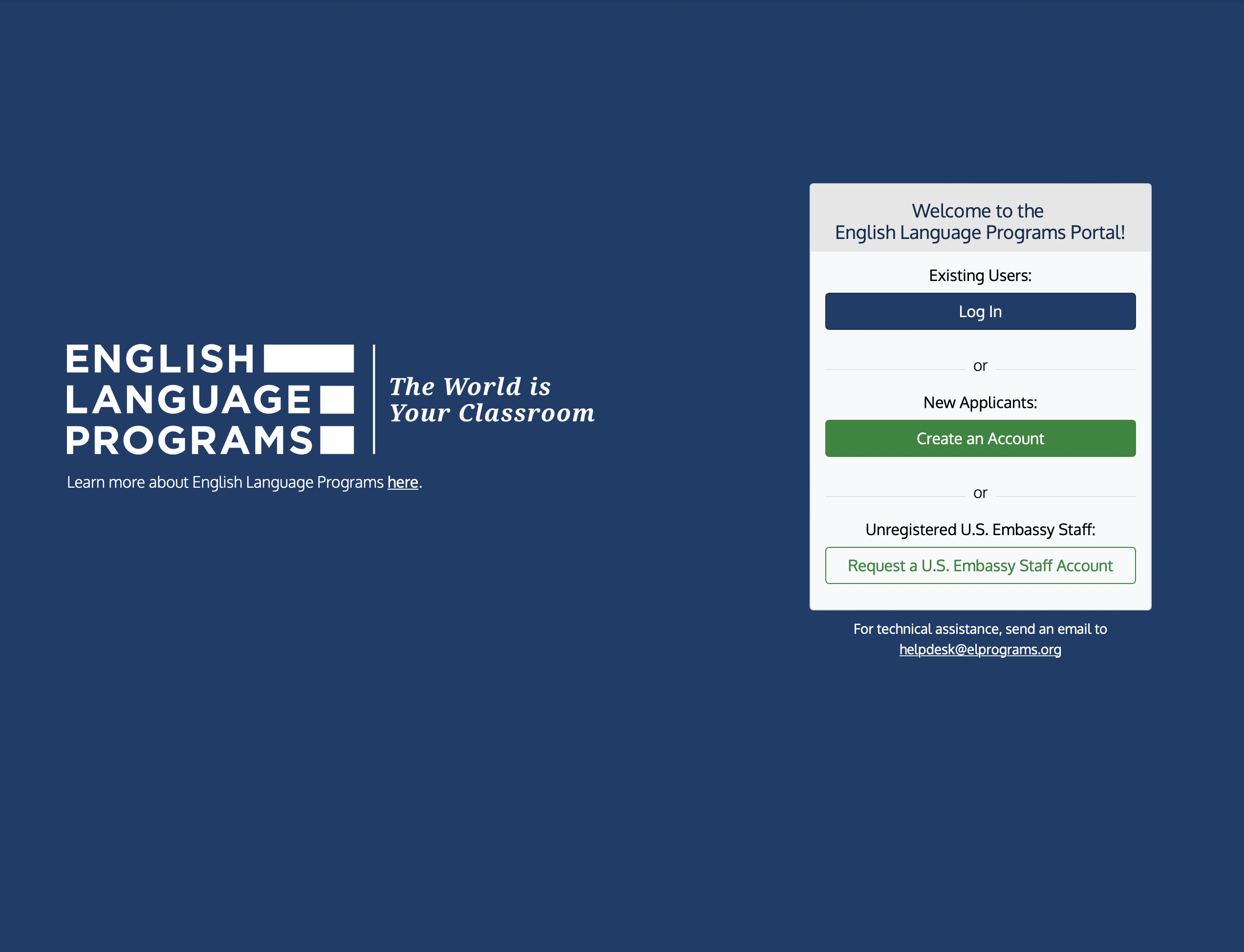
English Language Fellow Program
Program Application: Guidelines and Tips
This video gives Fellow applicants tips and guidelines on the Fellow application process.
Fellow Program
Review, Matching, and Selection
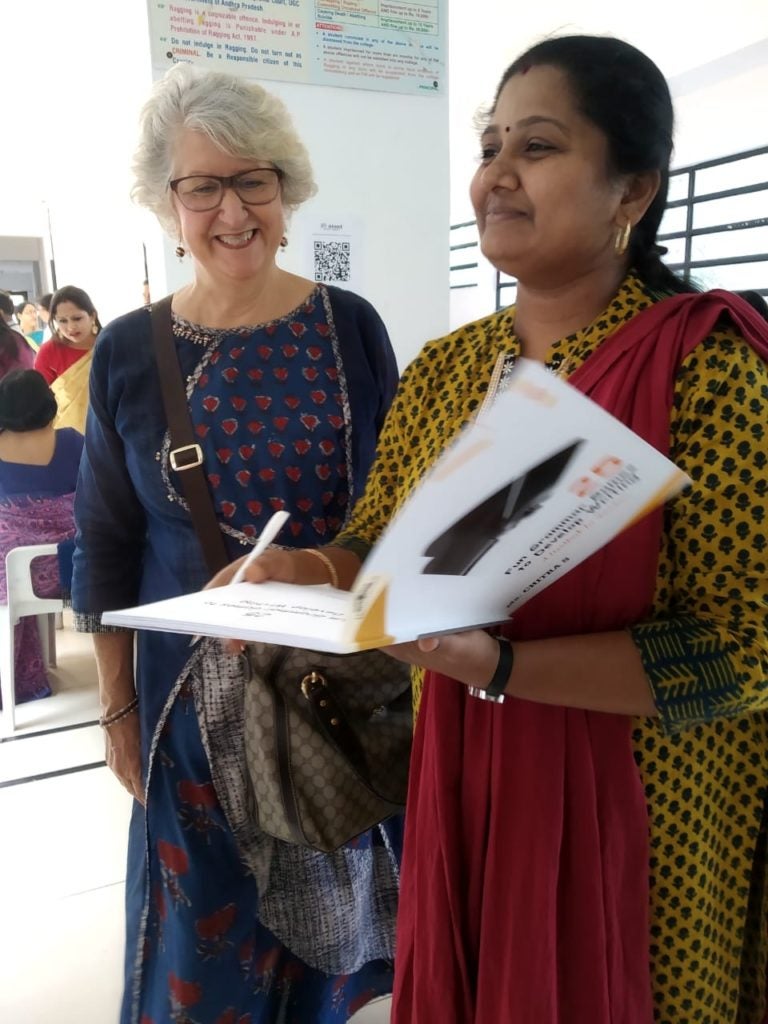
1. Review
The application review begins once a completed application and the two required references are submitted.
Each application is reviewed to determine whether it meets program eligibility requirements and if there is evidence of the experience and qualities the program looks for in Fellows.
Eligible applicants are contacted for a virtual interview. Following the interview, applicants are notified by email if they have been put into the available pool for matching for the upcoming cycle. Being placed in the applicant pool does not guarantee that an applicant will be matched to or ultimately selected for a fellowship.
If an application does not meet program eligibility, the applicant is notified by email and no further consideration is given for the upcoming cycle. Applicants are encouraged to review their materials and consider reapplying for a future cycle. Applications are not automatically reconsidered for future cycles.
Applicants can track the status of their application eligibility review online by logging in to the English Language Programs Portal.
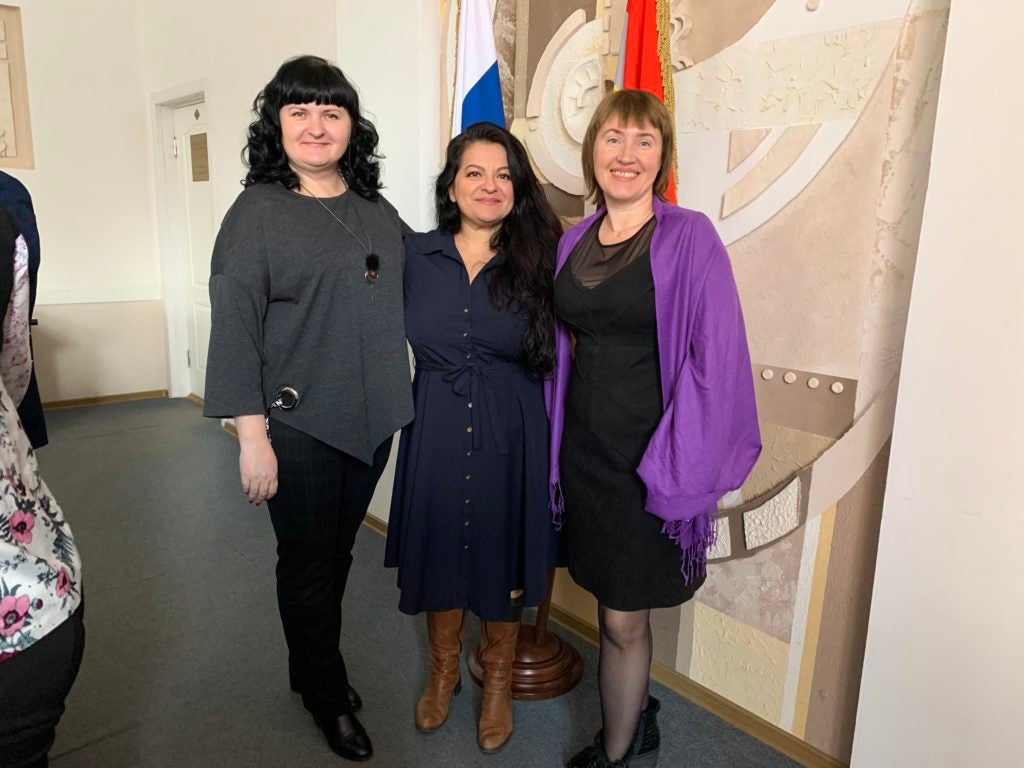
2. Matching
Applications that are moved to the available applicant pool are considered eligible to be matched to a project.
During the matching phase, the program matches applicants in the applicant pool to projects that have been developed by U.S. Embassies for the upcoming cycle. Being placed into the available applicant pool does not guarantee that an applicant will be matched to or selected for a project, as the number of applicants in the pool is typically greater than the number of available projects.
Each project is developed to address local needs and responsibilities and duties vary. Applications are considered for available projects if there is a professional match between the applicant’s skills and experience, and the needs and requirements of the project.
Applicants are contacted by email if a determination is made that their application meets the specific needs of an available project. A project match notification is NOT a notification of selection. The match notification email contains information about the location and a general description of the project’s duties. Applicants are asked to confirm whether they would like to be considered further for the project, at which point they move to the selection phase, or they can request that their application be withdrawn from consideration for that project. If a request is made to withdraw an application for consideration for a specific project, the application will be placed back into the applicant pool, but there is no guarantee of another match.
As each project is unique and requires different qualifications, it is not possible to anticipate if or when an applicant in the applicant pool will be contacted regarding a project match. The matching phase can take several months to complete. Applicants will be notified by email only if they are matched to a project.
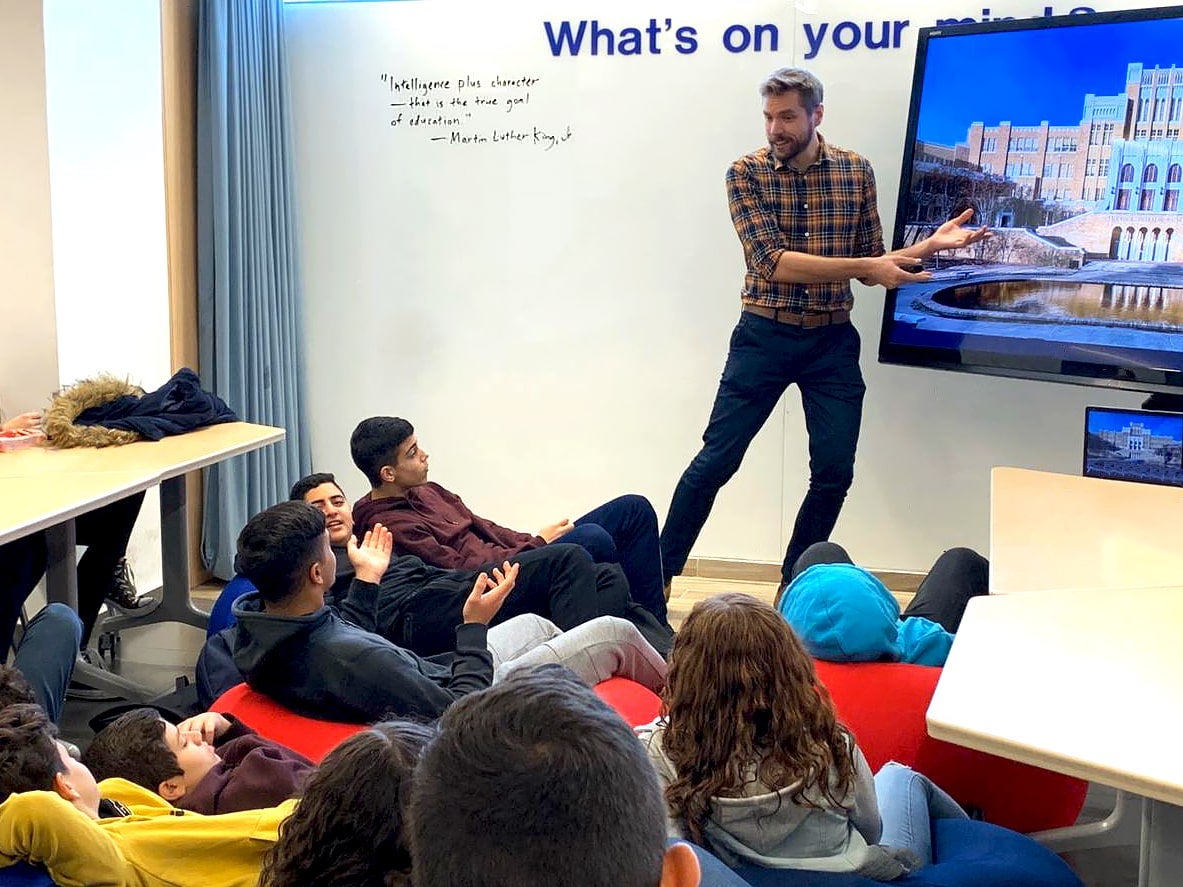
3. Selection
Applications that have been matched to a project are forwarded to the relevant U.S. Embassy for their consideration. The U.S. Embassy may reach out to the applicant and arrange an interview.
U.S. Embassies make the final selection decisions for all Fellow Program projects. Matched applicants will be notified by email of the final selection decision. Applicants who are not selected will be placed back into the applicant pool, but there is no guarantee of another match.
Fellow Program
Resources
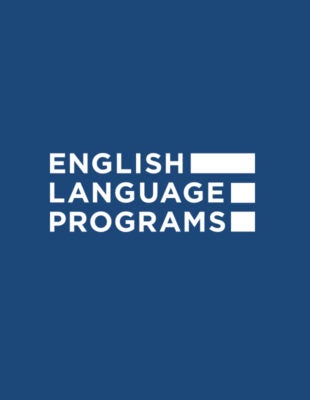
Handbook
The Fellow policy handbook is a compendium of the current program policies and processes for selected Fellows.
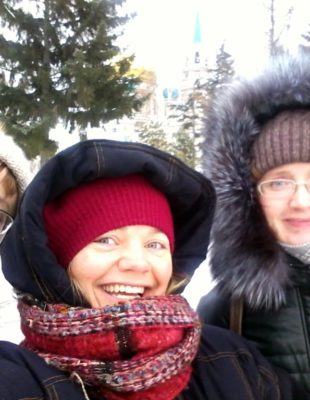
Health Verification Form (HVF)
Candidates selected for the English Language Fellow Program must complete an HVF and submit it to the cooperating agency by the deadline stated in their acceptance letter. Offers to participate in the program are conditional, pending medical clearance.
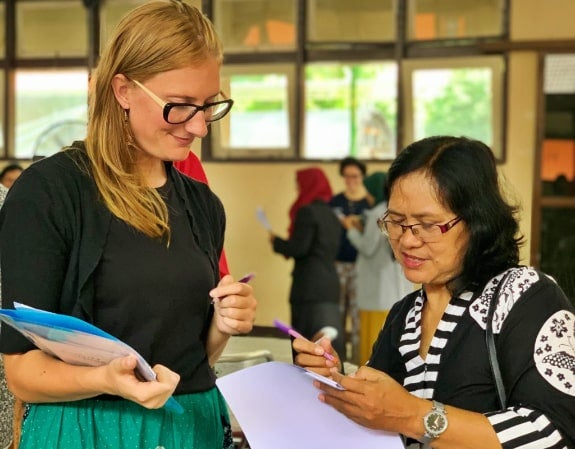
Fellow Program
Need More Information?
The Fellow FAQs page provides answers to commonly asked questions.
